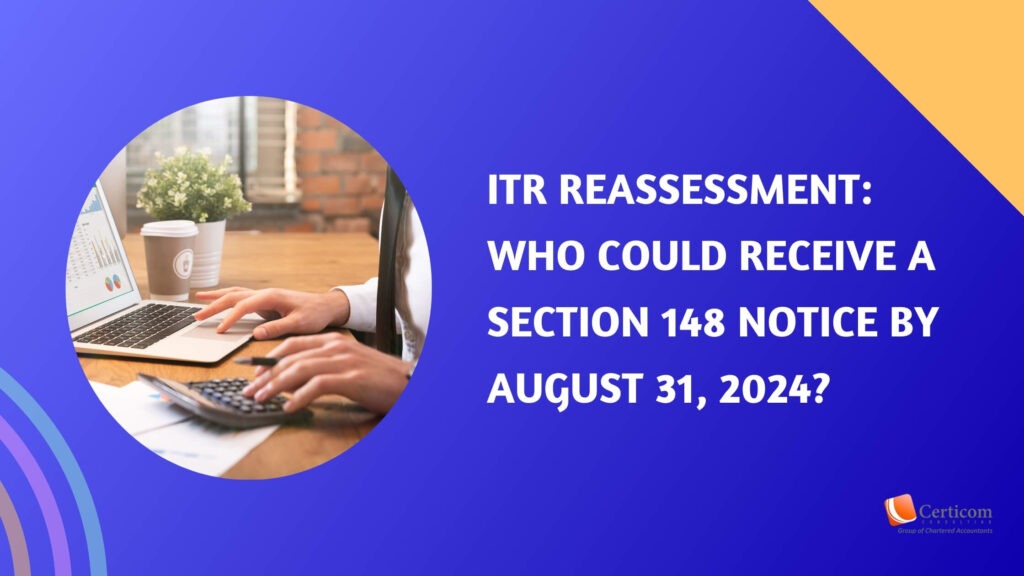ITR Reassessment: Who Might Receive a Tax Notice Under Section 148 by August 31, 2024?

As the deadline for reassessing old Income Tax Returns (ITRs) approaches, individuals should be aware that they may receive a notice under Section 148 of the Income Tax Act if their income has escaped assessment. This is particularly relevant for those with escaped income of ₹50 lakh or more for the assessment year (AY) 2018-19 or later. The critical deadline to watch for is August 31, 2024.
Key Changes Proposed in Budget 2024
The Finance Bill 2024 introduced significant amendments to Section 148A of the Income-Tax (I-T) Act, including new time limits for issuing notices. Specifically, for cases where the income escaping assessment is ₹50 lakh or more, the notice under Section 148A must be issued within five years from the end of the relevant assessment year. Following this, a notice under Section 148 must be issued within five years and three months from the end of the assessment year. These changes are set to take effect on September 1, 2024.

Under the existing provisions, the reassessment notice for AY 2018-19 could be issued up to ten years from the end of the relevant assessment year, meaning until March 31, 2029. However, with the new amendments, this time limit has been shortened to June 30, 2024. Therefore, to adhere to the new timeline, any notices under Section 148A or 148 must be issued by August 31, 2024.
Starting September 1, 2024, assessments for AY 2018–19 will be time-barred. Therefore, if an individual has escaped income of ₹50 lakh or more for AY 2018-19, they should be prepared to receive a notice under Section 148 or an order under Section 148A by August 31, 2024.
What to Do If You Receive a Notice Under Section 148
If you receive a notice under Section 148A, it’s essential to verify whether it was issued within the prescribed time frame.
Here’s how you should respond:
Review the Notice
Begin by checking if the Assessing Officer has provided reasons for issuing the notice under Section 148. If the reasons are not included, request a copy from the Assessing Officer.
Respond Promptly
You have 30 days to respond to the notice. You can either file a return or submit a written reply with all necessary details and supporting documents.
Agreeing with the Notice
If you agree with the Assessing Officer’s reasons, promptly file your return. If you’ve already filed, send a copy to the Assessing Officer.
Accurate Filing
Ensure that all your income and expenses are accurately declared in your return to avoid any penalties.
Challenging the Notice
If you believe the notice is invalid or the reasons for reopening the assessment are unjustified, you can challenge it before the Assessing Officer or escalate the matter to higher authorities.

Outcome of the Challenge
If your challenge is successful, the court will halt the assessment proceedings. If not, the Assessing Officer will proceed with the reassessment.
As the August 31, 2024, deadline looms, it’s crucial for taxpayers to be vigilant. If you suspect your income may have escaped assessment, especially for AY 2018-19 or later, be prepared to respond promptly to any notices you may receive.
Related Post
Resident’s Guide to Buying NRI Property in India
Flipkart ESOP Compensation: ₹11 Crore Payout – Salary or Capital Receipt?
Book A One To One Consultation Now For FREE
How can we help? *




